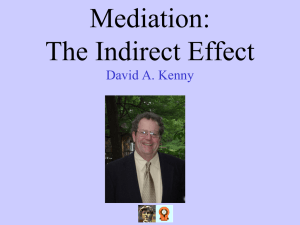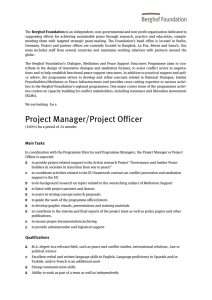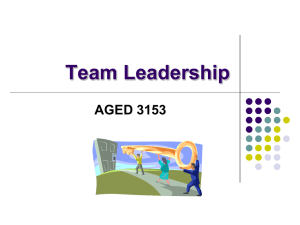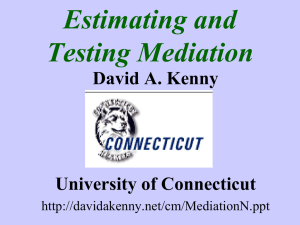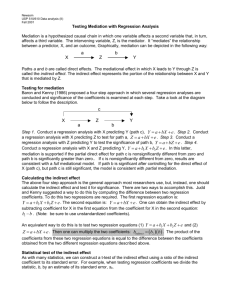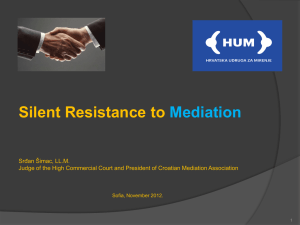The Four Steps Approach
advertisement
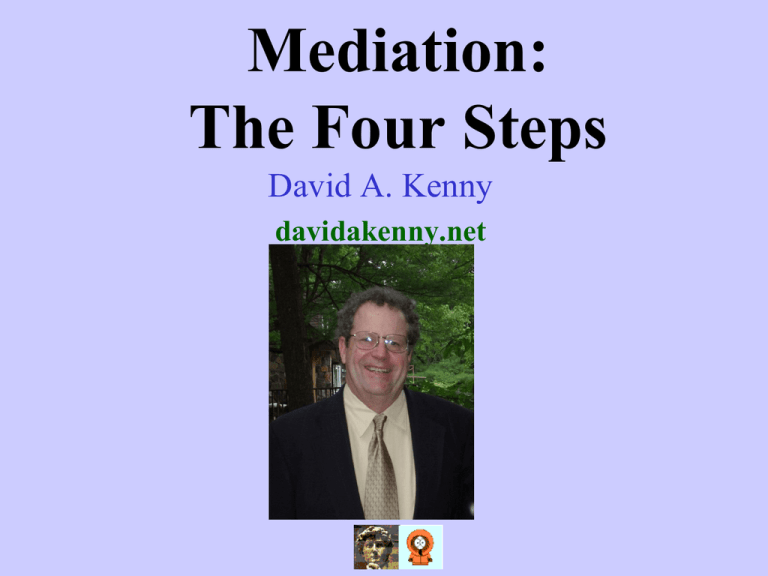
Mediation: The Four Steps David A. Kenny davidakenny.net Mediation Webinar • Basics 2 The Beginning Model 3 The Mediational Model 4 The Four Paths • • • • X Y: path c X M: path a M Y (controlling for X): path b X Y (controlling for M): path c′ (standardized or unstandardized) 5 In the 1980s Different Researchers Proposed a Series of Steps to Test Mediation • Judd & Kenny (1981) • James & Brett (1984) • Baron & Kenny (1986) 6 Steps • Step 1: X Y (test path c) • Step 2: X M (test path a) • Step 3: M (and X) Y (test path b) • Step 4: X (and M) Y (test path c′) 7 Differences in the Three Approaches • James & Brett assuming complete mediation estimate Step 3 without controlling for X whereas both Judd & Kenny and Baron & Kenny control for X. • Judd & Kenny and James & Brett require all four steps whereas Baron & Kenny do not require Step 4. 8 Steps Incredibly Popular with Practitioners • Suggested a straightforward way of testing mediation using a widely available estimating method. • Very often lead to a successful result: Some sort of mediation was indicated. • Very widely adopted and eventually the expectation was for some sort of mediational analysis. 9 References • Judd, C. M., & Kenny, D. A. (1981). Process analysis: Estimating mediation in treatment evaluations. Evaluation Review, 5, 602-619. • James, L. R., & Brett, J. M. (1984). Mediators, moderators and tests for mediation. Journal of Applied Psychology, 69, 307-321. • Baron, R. M., & Kenny, D. A. (1986). The moderator-mediator variable distinction in social psychological research: Conceptual, strategic and statistical considerations. Journal of Personality and Social Psychology, 51, 1173-1182. 10 More Mediation Webinars • Indirect Effect • Testing the Indirect Effect • Causal Assumptions 11

